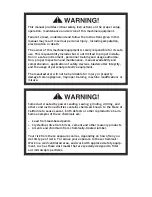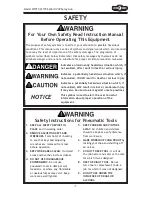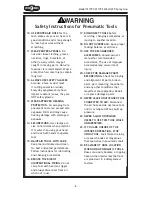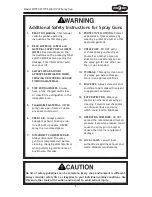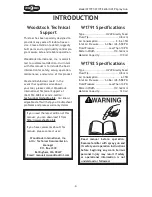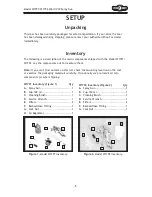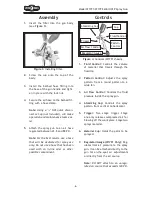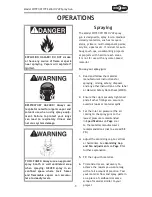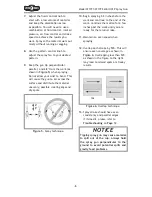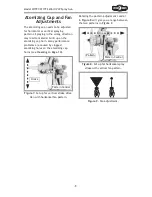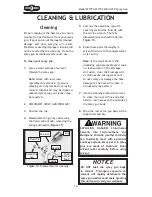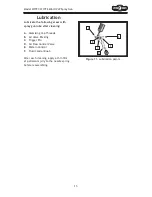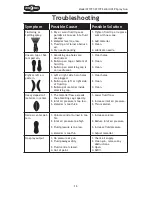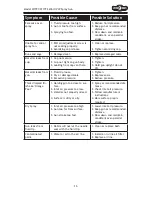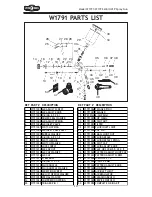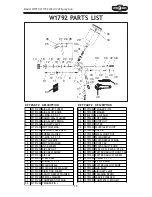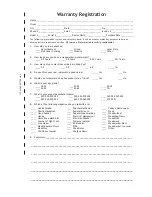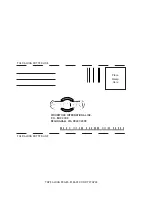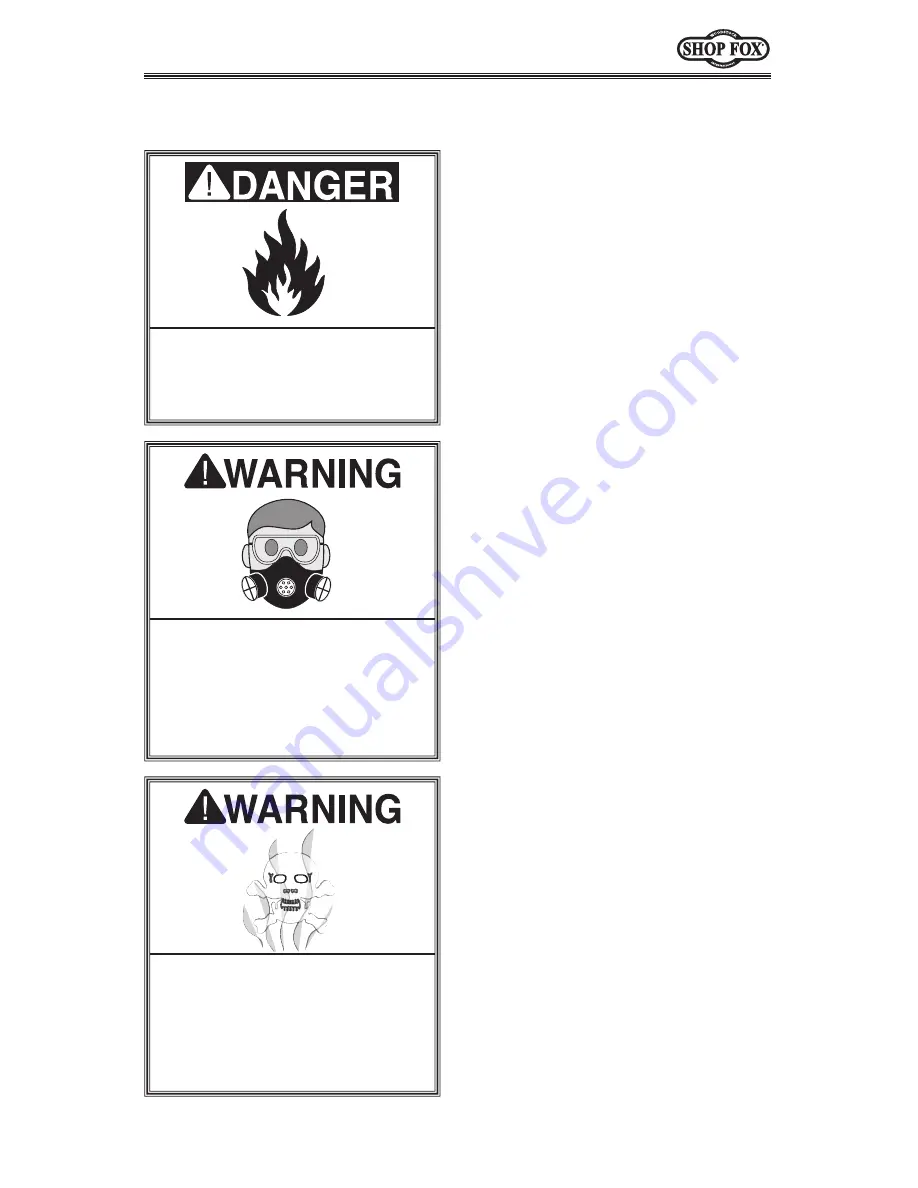
Model W1791/W1792 Mini HVLP Spray Gun
-7-
OPERATIONS
EXPLOSION HAZARD! DO NOT smoke
or have any source of flame or spark
near spraying. Vapors will explode if
ignited.
RESPIRATORY HAZARD! Always use
respirator rated for organic vapor and
solvent use when using spray equip-
ment. Failure to protect your lungs
can lead to respiratory illness and
nervous system damage.
TOXIC FUMES! Always use an approved
spray booth or well ventilated area
when spraying. NEVER spray in an
confined space where toxic fumes
and flammable vapors can accumu-
late to deadly levels.
Spraying
The Model W1791/W1792 HVLP spray
gun is designed to spray low to medium
viscosity materials, such as lacquers,
stains, primers, multi-component paints,
acrylics, epoxies etc. It is ideal for auto
body touch-ups, woodworking projects,
or projects with hard to reach areas.
It is not for use with any water-based
material.
To use your spray gun:
1.
Read and follow the material
manufacturer's instructions for
spraying, mixing, safety, disposal,
and any other instruction on the label
or Material Safety Data Sheet (MSDS).
2.
Ensure the cup is securely tightened
and all other fittings are secure to
avoid air leaks or material spills.
3.
Set the inlet air pressure (the air
coming to the spray gun) to the
lowest pressure recommended
in
Specifications
on
Page 4
or
to the material manufacturer's
recommendations (not to exceed 58
PSI).
4.
Adjust the atomizing cap to vertical
or horizontal. See
Atomizing Cap
and Fan Adjustments
on
Page 9
for
further explanation.
5.
Fill the cup with material.
6
. Trial and error are necessary to
achieve the results you want along
with a fair amount of practice. Test
your material flow and spray pattern
on a piece of cardboard or some
scrap of material similar to your
project.
Summary of Contents for W1791
Page 2: ... ...


